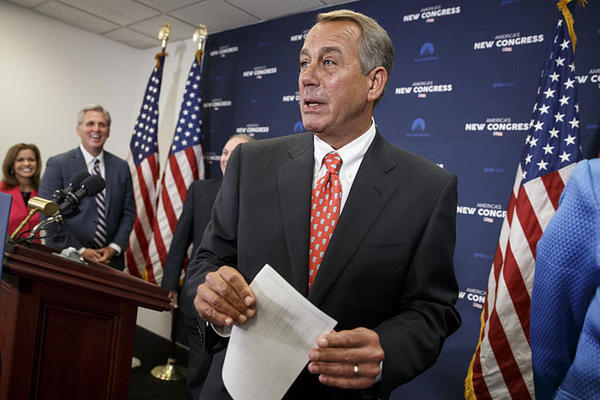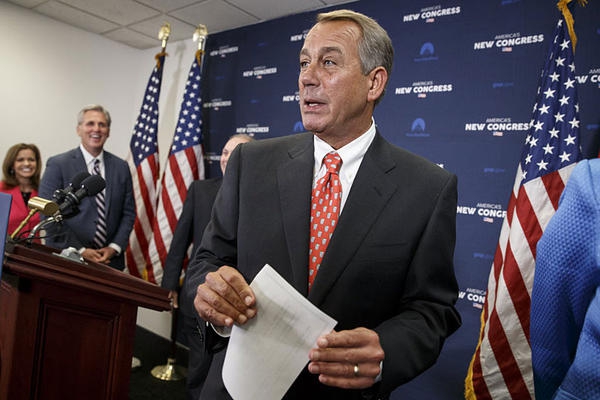 On the morning after President Barack Obama's State of the Union speech, House Speaker John Boehner of Ohio, leaves a news conference on Capitol Hill in Washington, Wednesday, Jan. 21, 2015, after telling reporters that he has asked Israeli Prime Minister Benjamin Netanyahu to address Congress on dealing with terrorism, but did not consult the White House on the invitation.[/caption]
On the morning after President Barack Obama's State of the Union speech, House Speaker John Boehner of Ohio, leaves a news conference on Capitol Hill in Washington, Wednesday, Jan. 21, 2015, after telling reporters that he has asked Israeli Prime Minister Benjamin Netanyahu to address Congress on dealing with terrorism, but did not consult the White House on the invitation.[/caption]Israeli Prime Minister Netanyahu's address to Congress says a lot more about Israel and US relations than Obama choosing not to meet with him.
Citing�Israel's upcoming election, the�White House�announced on Thursday that�President Barack Obama�will not meet with�Israeli Prime Minister Benjamin Netanyahu�when he visits the US in March.
"As a matter of long-standing practice and principle, we do not see heads of state or candidates in close proximity to their elections, so as to avoid the appearance of influencing a democratic election in a foreign country," White House spokeswoman�Bernadette Meehan said in a statement.
The Israeli elections will be held on March 17, just two weeks after his trip to the�United States.
Mr. Netanyahu was originally scheduled to visit in February to deliver an address to a joint session of Congress, but he requested that the speech be moved so that he could�speak at the�American Israel Public Affairs Committee�(AIPAC) in March on the same trip.�House Speaker John Boehner obliged with Netanyahu's request, but did so without informing the president, a move that the White House characterized as a "departure" from "protocol."
House�Minority Leader Nancy Pelosi, also weighed in.�"If that's the purpose of Prime Minister Netanyahu's visit two weeks before his own election, right in the midst of our negotiations, I just don't think it's appropriate and helpful," Ms.�Pelosi told the AP.
Netanyahu's speech to Congress will likely push for further sanctions on�Iran, a proposal that goes against Obama�s agenda. The president has urged legislators from both parties to pause on passing new Iranian sanctions while the US and other countries carry out negotiations over Iran's nuclear policy.
Even if Congress were to pass a bill containing new sanctions, Obama would likely veto it.
Netanyahu, whose�Likud Party is currently running behind the main opposition, the Labor Party,�has a lot to gain, or lose, with this speech, which is viewed by some of his opponents as an election ploy. Attorney Eldad Yaniv, a former adviser to Ehud Barak, has demanded that the Elections Committee�not air the speech on television networks.
As for the speech itself, a statement from Netanyahu's office said that it would give the prime minister a welcome opportunity to "thank President Barack Obama, Congress and the American people for their support of Israel."
By The Christian Science Monitor
The Iran Project is not responsible for the content of quoted articles.











